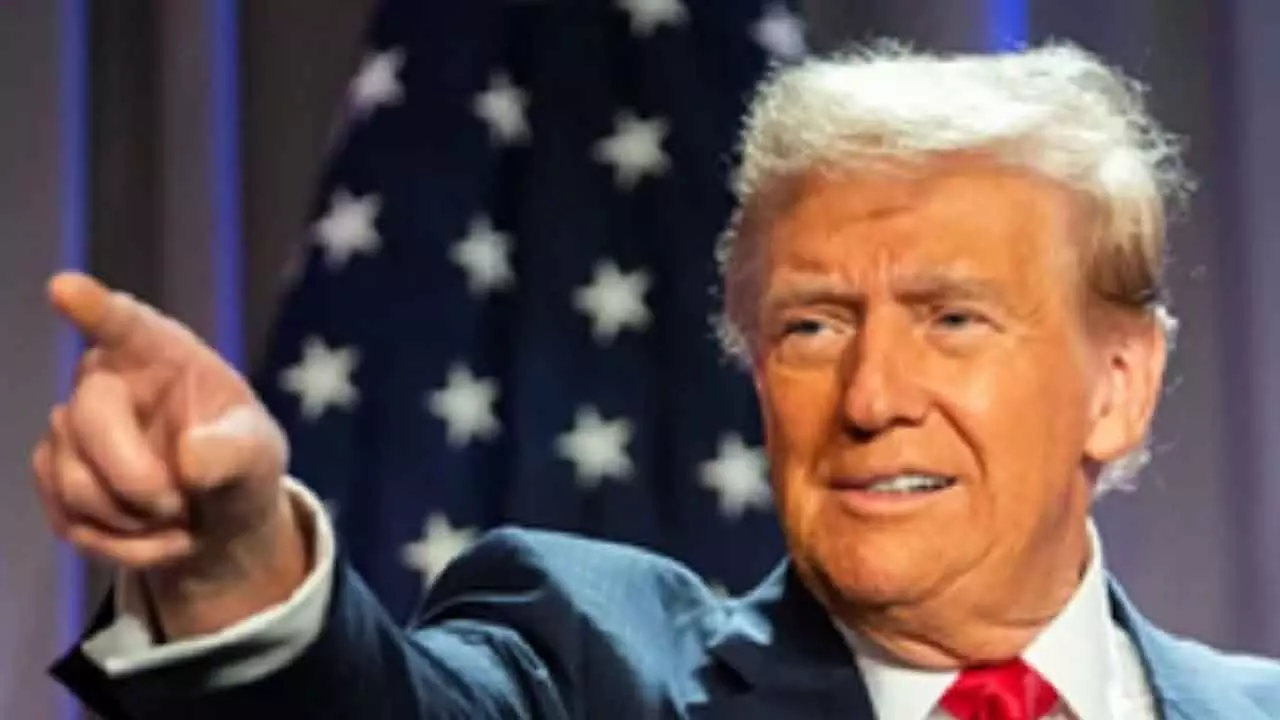Tariffs on Drug Imports Loom as Trump Targets Pharma Industry
President Trump plans new tariffs on imported drugs, pushing pharma firms to shift manufacturing to the U.S. amid concerns over supply chains.
image for illustrative purpose

President Donald Trump on April 8 reiterated his administration's plan to implement tariffs on pharmaceutical imports, a category previously left untouched in earlier trade disputes due to its direct impact on patients.
The administration had left pharmaceutical products out of a sweeping tariff announcement last week. However, tariffs have already been imposed on raw materials and components imported from China, which are essential to the U.S. pharmaceutical industry. Trump has repeatedly expressed concern about pharmaceutical production in Europe and hinted that tariffs in this sector could reach or exceed 25 per cent.
During recent remarks, Trump emphasized the need for American-based production of prescription drugs. He mentioned major pharmaceutical firms, including Eli Lilly, Johnson & Johnson, and Pfizer, stating they should prioritize domestic manufacturing to reduce reliance on foreign supply chains and increase national tax revenues.
Key drugs such as Lilly's Zepbound and Merck's Keytruda rely on ingredients produced in Europe, particularly in Ireland, a country favored by drugmakers for its low corporate tax rate. Trump has criticized the industry's practice of housing intellectual property overseas to benefit from reduced taxes.
In his April 2 tariff announcement, Trump highlighted the limited domestic production of antibiotics. Most of these medications, including widely used generics, are imported from countries like China and India. He also pointed out that U.S. consumers pay significantly more for brand-name drugs compared to patients in countries with centralized price controls.
"Other nations cap prices. If a company charges more than a certain amount, they lose access to that market," Trump said on April 8. Unlike nations with government-run health systems, the U.S. allows private entities to negotiate drug prices. Under the Inflation Reduction Act signed by former President Joe Biden, the federal government began direct negotiations for a limited set of drugs covered under Medicare.
Industry reaction has focused on calls for a phased approach. Drug manufacturers have urged the administration to delay implementation of tariffs, citing the financial and logistical challenges of shifting production. Companies including Eli Lilly and Novo Nordisk have announced expansion plans for U.S.-based facilities since Trump assumed office.
The Pharmaceutical Research and Manufacturers of America (PhRMA) trade group stated that constructing a new plant in the U.S. may require investments up to $2 billion and as long as a decade to become operational. Some firms have already started shipping higher volumes of drugs via air freight from Europe to preempt potential supply disruptions.
Trump’s executive order last week placed pharmaceuticals under a Section 232 investigation of the 1962 U.S. Trade Act, a process to assess whether such imports threaten national security. The Commerce Department has up to 270 days to complete the review. Trump mentioned on April 8 that an official announcement concerning pharmaceutical tariffs is expected soon, but did not provide a specific timeline.
In a separate move on April 9, Trump announced temporary reductions on tariffs for several countries, even as tariffs on Chinese imports were raised, introducing additional uncertainty into the administration's trade stance.
Experts warn that imposing tariffs on pharmaceuticals could result in reduced availability of essential generic medicines and increased prices across the board. Drugmakers argue that such financial pressures might hinder investment in new drug research and development, impacting long-term innovation in the sector.

